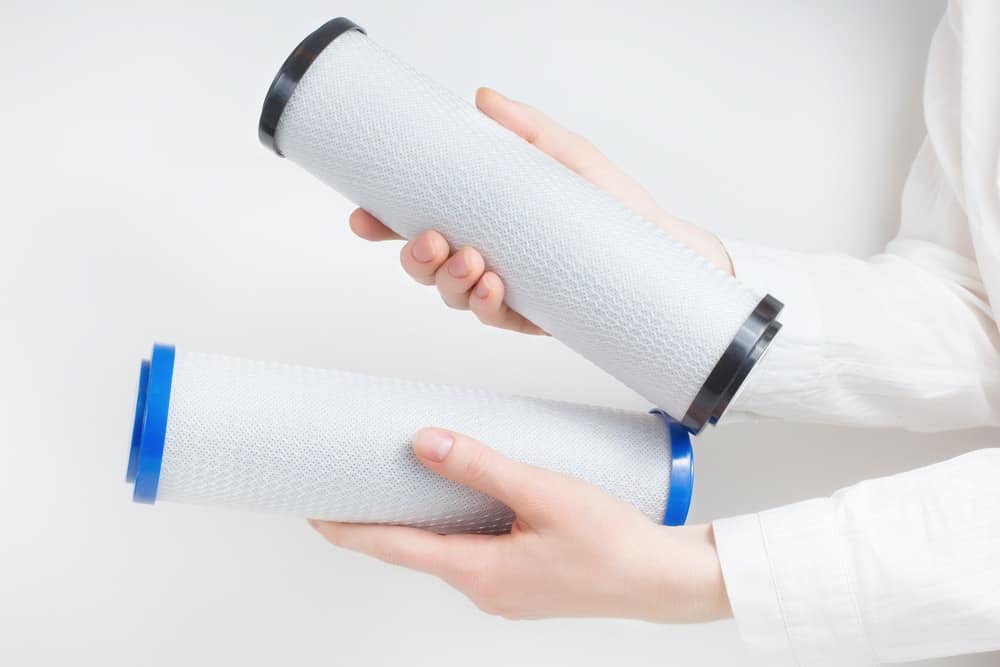Is There a Difference Between Activated Carbon & Charcoal Water Filters?

Anybody who’s looking for a safe and effective way to remove hard minerals from their home’s water supply has probably read about activated carbon and charcoal water filters – but which is better? Should you choose a carbon filter for your home, or is a charcoal filter preferable?
Your search should start with an understanding of what activated carbon and charcoal are – and why they are commonly used for water filtration.
What is Charcoal?
Charcoal is made by taking organic material – most often wood – and burning it without oxygen. This process is known as pyrosis. As a rule, the wood is burned at temperatures between 840 and 950 degrees Fahrenheit. After the wood has burned, the resulting material is allowed to cool. Then, vents in the kiln are closed to remove oxygen and allow the remnants to char.
The result is the hard, porous substance known as charcoal. Charcoal contains a great deal of carbon and may be used for cooking, heating, and filtration, among other things.
What is Activated Carbon?
Activated carbon has a great deal in common with charcoal, but there are some key differences between the two as well.
While charcoal is traditionally made from wood, activated carbon may be made from wood, peat, nutshells, coconut husks, lignite, coal, coir, or petroleum pitch. It is made using one of two processes:
- Physical activation can be completed two ways. The first is by using pyrolization, the same process used to create charcoal. The second involves oxidation, which involves exposing the carbon to oxygen or steam at high temperatures, usually between 600 and 1200 degrees Fahrenheit.
- Chemical activation involves impregnating the carbon with certain chemicals. Common choices include sodium hydroxide, phosphoric acid, potassium hydroxide, sodium chloride, or zinc chloride.
Many manufacturers prefer chemical activation because it may done with lower temperatures than physical activation and it’s also a quicker process.
What is the Difference between an Activated Carbon Filter and a Charcoal Filter?
The primary difference between a water filter that uses activated carbon and one that uses charcoal is in the filtering materials themselves. Both are hard, porous substances that capture contaminants. How do they differ?
It’s important to note first that many people use the terms activated charcoal and activated carbon interchangeably. They do have many things in common, but there is some evidence that activated carbon may be a better choice.
As a rule, activated carbon is purer and of a better quality than activated charcoal. Activated charcoal can be useful as a filter, and it is certainly greatly preferable to not filtering water at all.
However, the purity and effectiveness of activated carbon provides the greatest possible protection for your family, especially when it is combined with three other filtration methods as in our Guardian Water Services water refiner.
Activated carbon is effective because of its relatively large surface area. To give you an idea of how much surface area a small amount of activated carbon can have, let’s look at an example.
Imagine one gram of activated carbon. It would be tiny, but it would have a surface area of approximately 500 meters squared – or one-tenth the size of a standard football field. The porous material allows water to pass through, while the surface retains harmful hard chemicals such as iron.
Using an activated carbon water filter can soften your water, reduce the amount of soap you use, and even improve the appearance of your hair and skin.
Activated charcoal water filters can be effective, but a high-quality activated carbon filter is a great choice to provide your family with the safe, high-quality water they deserve. The first step is signing up for your free water quality test to get started.
Topics:

